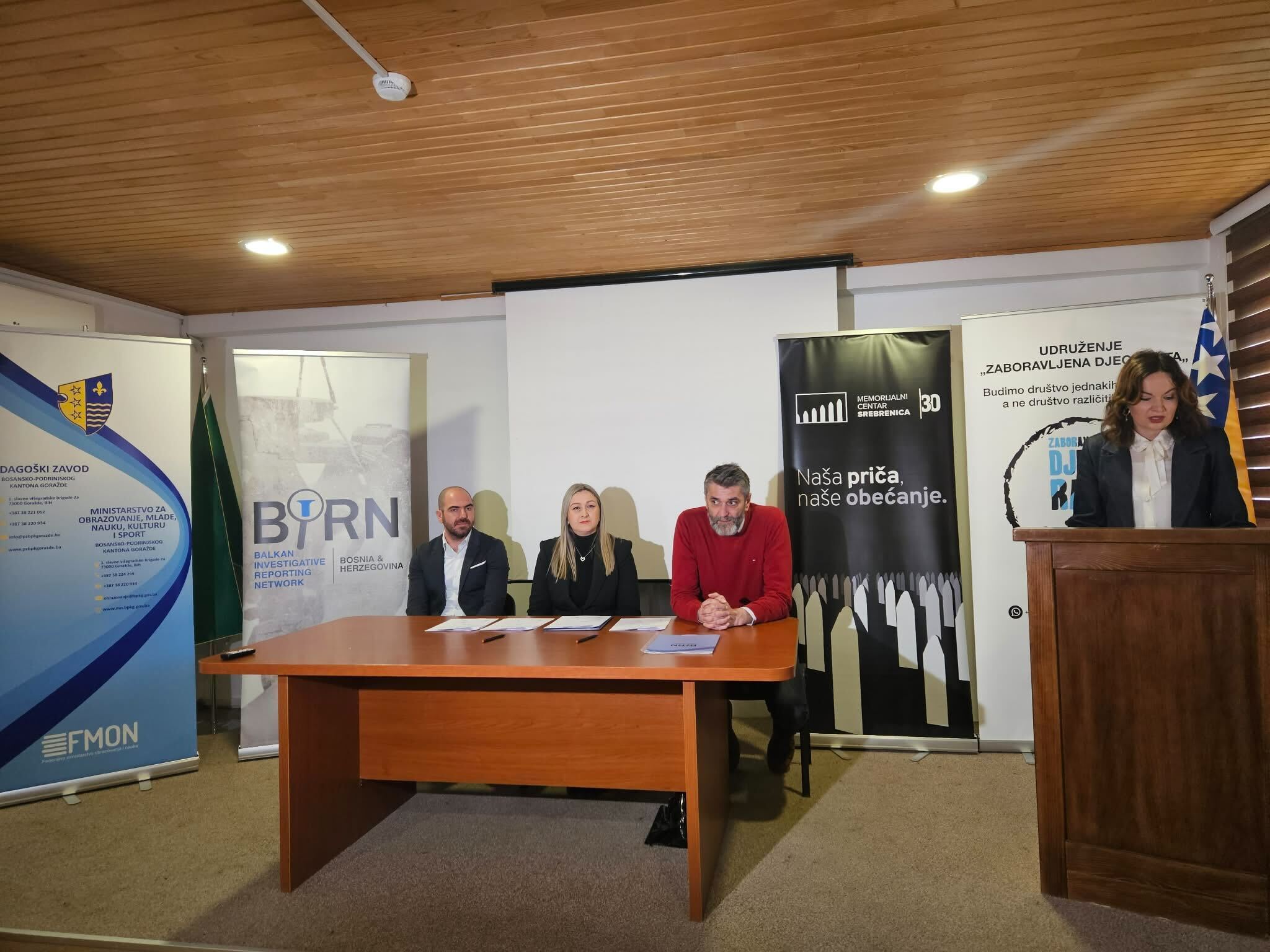This post is also available in: Bosnian
At the trial for crimes committed in Bugojno, an expert military witness for the Defence says that the detention camp at Iskra stadium was not under Enes Handzic’s command.
Expert witness Fikret Muslimovic said that the Iskra detention camp in Bugojno was under the command of the wartime Presidency of Bugojno and not the Army of Bosnia and Herzegovina in 1993 and 1994.
“The wartime Presidency was the leading authority for captives and prisoners who were held in the prison at Iskra stadium, given the fact that it was also responsible for the establishment of the prison. In preparing my findings, I did not see any documents confirming that Handzic was informed of those happenings,” said Muslimovic, who began presenting his findings on March 16.
At the request of Enes Handzic’s Defence, Muslimovic prepared his findings and opinion about the relationship between the military security and civilian authorities in Bugojno during the war.
The Prosecution of Bosnia and Herzegovina charges Handzic, Nisvet Gasal, Musajb Kukavica and Senad Dautovic with having participated in the robbing, murder and torture of Croat civilians and members of the Croatian Defence Council, HVO, who were held at Iskra stadium and other locations in Bugojno in 1993 and 1994.
The indictment alleges that Handzic, former Assistant Commander for Security with the 307th Brigade of the Army of Bosnia and Herzegovina, and Dautovic, former Chief of the Public Safety Station in Bugojno, participated in the planning and capture of civilians, while Gasal and Kukavica were responsible for the operation of the Iskra detention camp, where about 300 Croats were held in inhumane conditions.
Muslimovic explained that Handzic had “an interest” in HVO members who were held in Iskra detention camp, but he was able to perform only “low ranking and administrative tasks” in relation to those prisoners.
The expert witness said that in 1993 and 1994, indictee Handzic was not present at the wartime Presidency sessions at which decisions pertaining to “security issues in the municipality” were made.
“In its relation with the Command of the Army of Bosnia and Herzegovina, the wartime Presidency applied some unusual decisions and orders. In that sense, the orders and minutes contain illustrative examples of the wartime Presidency assigning certain tasks to the Command of the Army of Bosnia and Herzegovina. It is very unusual to assign tasks to a body that is not subordinate,” Muslimovic explained.
Responding to cross-examination questions posed by the Defence of Senad Dautovic about relations between police and the Army in Bugojno, Muslimovic said that the civil and military police had to have “a cooperative” and not “a subordinate” relation.
“The police forces of the Public Safety Station in Bugojno were subordinate only to the Safety Services Centre in Zenica. It was not possible to put them under the command of the 307th Brigade or any other unit with the Army of Bosnia and Herzegovina, because the war tasks of those members would have had to be changed and they would no longer be under the command of the police station in Bugojno,” Muslimovic said.
The next hearing is due to take place on Wednesday, April 13, when Dautovic’s Defence will continue cross-examining expert witness Muslimovic.
D.Dž.

